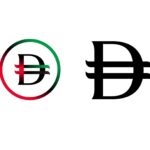Recent data from Clark Moody’s Bitcoin dashboard reveals a significant milestone for the Bitcoin network: surpassing one billion transactions.
In recent weeks, Bitcoin transactions and associated fees have been a focal point of discussion within the industry. This attention is partly attributed to the introduction of Bitcoin Ordinals and Runes.
Notably, the debut of Runes, a fungible token protocol launched concurrently with the latest Bitcoin halving last month, led to transaction fees hitting an all-time high.
The Bitcoin halving occurs approximately every four years and reduces miners’ rewards by 50%. The most recent halving event saw rewards decrease from 6.25 Bitcoins to 3.125.
Bitcoin, hailed as the world’s first blockchain-based cryptocurrency, traces its origins to January 2009 when its founder, Satoshi Nakamoto, mined the network’s genesis block.
Initially conceived as a peer-to-peer payment system, Bitcoin historically faced challenges in handling tokenized assets like non-fungible or fungible tokens compared to alternative networks such as Solana or Ethereum.
The introduction of Bitcoin Ordinals heralded a new era for tokenized assets on the network. By embedding data onto satoshis, the smallest unit of Bitcoin, Bitcoin Ordinals facilitated the existence of NFTs (non-fungible tokens) on the Bitcoin blockchain.
The launch of Runes, primarily utilized for memecoins at present, holds the potential to expand the network’s capabilities, particularly in decentralized finance (DeFi) applications.





